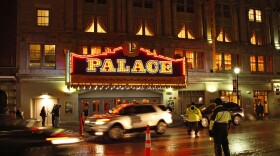The bill would require the state to negotiate an agreement with the Mashantucket and Mohegan tribes, who have the exclusive rights to keno in the state.
The state legislature's Finance, Revenue and Bonding committee heard public testimony on Wednesday on the video lottery game keno.
House Bill 7054 would give the Connecticut Lottery Corporation the authority to operate Keno, with the exception of the Mohegan Sun and Foxwoods casinos.
Anne Noble, President and CEO of the Connecticut Lottery Corporation, told the committee that keno could be up an running within six months of authorization, and is projected to be a progressive money-maker for the state.
"In the first three years, keno is projected to increase gross lottery sales $25 million, $50 million, and $70 million," Noble said. "In the out years, [it would be] most likely $300 million, close to a third of our existing gross sales, and more than the very popular game of Powerball."
Republican state Senator Tony Hwang opposes the measure. He called it a short term solution, and suggested that keno is much more addicting than other lottery games like powerball.
"We are looking to bring keno as a gambling game -- that may be similar to bingo that we see in our churches -- but we are taking it to another level, bringing that as an interactive game that goes into the very essence of a family setting," Hwang said. "You're going to go into restaurants; you are going to go into settings where families could be exposed."
The bill would require the state to negotiate an agreement with the Mashantucket and Mohegan tribes, who have the exclusive rights to keno in the state. Both tribes say they are willing to negotiate a deal on keno.
Back in 2013, Governor Dannel Malloy quietly slipped Keno into the two-year budget, as a way to close a budget deficit. But the electronic lottery-type game had little support among lawmakers, and was never implemented.
The Connecticut Lottery projects it will have to spend $5.4 million over two years on keno infrastructure and marketing.
On WNPR's Where We Live, the weekly news roundtable The Wheelhouse discussed gambling in the satte as a revenue source and job creator. "Just to be talking about this is kind of an admission of moral failure," said Colin McEnroe. Listen below:
Tucker Ives contributed to this report.





